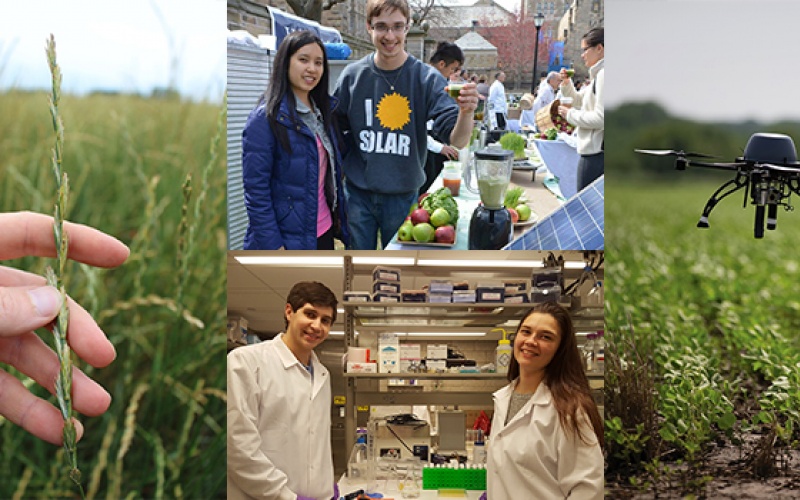Students from across Yale will kick off the next generation of landscape-shifting sustainability projects at the University’s West Campus this spring.
Four projects have been awarded as part of the inaugural Seedling Award program, designed to help students put innovative ideas of local, regional and global importance into practice on the campus landscape.
“Aside from the numerous institutes and schools here, we are fortunate to have this huge and varied space close to New Haven,” said Justin Freiberg, who directs the Yale Landscape Lab and the Seedlings Program. “These small projects are an ideal way for students and scholars to develop their ideas and put them to the test.”
The Landscape Lab provides access to an extensive mix of urban and natural environment in support of student and faculty projects at Yale. The Lab continues to grow collaborations across the University and beyond, connecting over 20 professional schools, departments, organizations, and student groups, who look to West Campus to bring their ideas to scale.
This year’s Seedling projects were chosen for the innovative way they will make use of the diverse campus environment, and for their applicability to sustainability-related issues of wide-reaching significance.
Project Bright Café
Bridging the relationship between energy and the intersections of sustainability and food in a fun and engaging way, Project Bright, the undergraduate student solar group, plans to use their Seedling Award to transform the off-grid West Campus barn into a café powered by solar energy and human generated electricity. The project aims to produce electricity from a series of stationary bikes and other mechanical systems to convert kinetic energy into usable power for cooking and other needs. The Café will serve as a multipurpose educational space for engagement between Yale students and lower and middle schools in the New Haven area.
Feather biodigester
Chicken feather disposal mechanisms – including incineration and landfill burial - are expensive, inefficient and environmentally taxing. Lillian Childress (YC, ’17) and Jonathan Simonds (YC, ’18) will test “biodigester” technologies that aim to lower feather biodegradation rates from 5-7 years to a period of around 72 hours. The project will explore the potential for untapped value from this common waste in the form of energy, fertilizer and reduced disposal costs – all helping reduce local pollution and mitigate broader climate change.
The potential of perennial wheatgrass
Perennial grain crops represent a paradigm shift in agriculture and hold great potential for a more sustainable food production system. Intermediate wheatgrass, marketed as Kernza® by the Land Institute, was developed to regenerate soil and water resources and reduce erosion. The development of perennial root systems hold promise on several fronts – reducing soil loss, carbon sequestration, decreasing bulk density, improving aeration, and water-holding. Rachel McMonagle (F&ES, ’18) will introduce Kernza® to designated plots on the grassy lawns of West Campus to test the viability of alternatives to typical lawns, and compare perennial and annual wheatgrass on a variety of environmental factors to assess the broader utility of this perennial crop.
Drone use for land management
Unmanned Aerial Vehicles - or Drones - are increasingly viewed as a means of scaling-down remote sensing by putting the power of aerial observation into the hands of everyday citizens. They have been used to analyze timber plantations, state parks, and industrial vineyards, but little research has been done at smaller research sites. Awarded to Ethan Miller, (F&ES ’18) and Ross Donihue, (F&ES ’18), this project will analyze how drones can be used for small-scale monitoring of different land-cover types. The research aims to create a methodology for collecting and disseminating high resolution imagery, helping to open the door for this technology in small agricultural areas, urban parks, reforestation efforts, and in invasive plant removal.
The projects will take place through the 2017 growing season, with students providing regular updates and final reports on the applicability of their findings to real world solutions. Follow along on our website, Facebook and Instagram as each of the student projects take shape.
For more information, and to sign up for the Yale Landscape Lab newsletter, visit westcampus.yale.edu/landscape-lab
